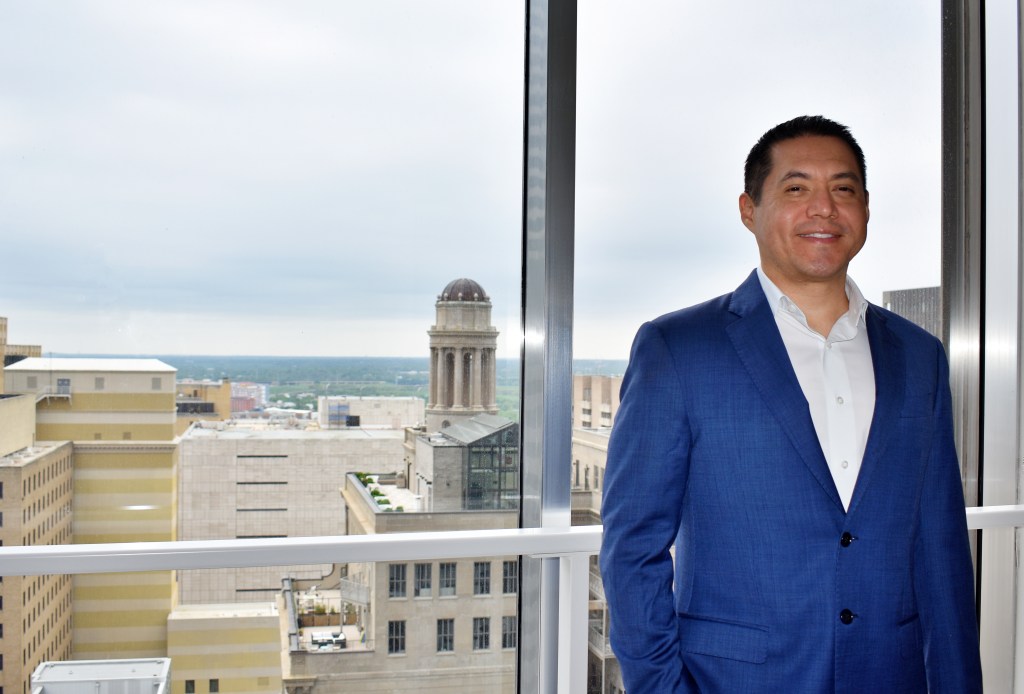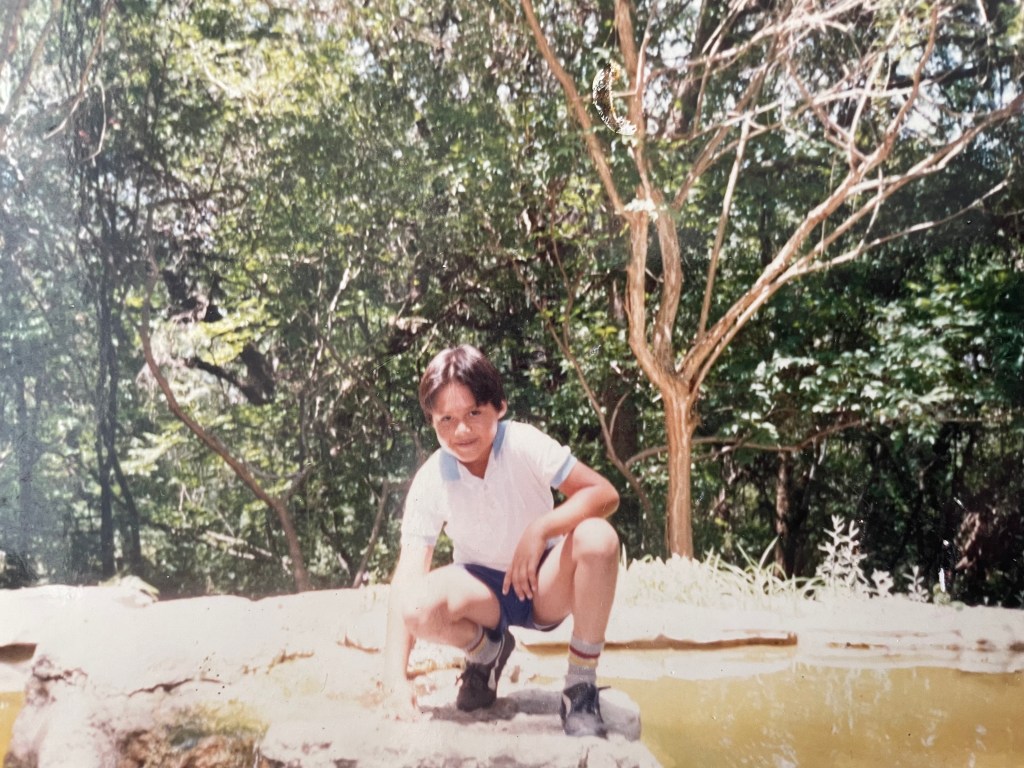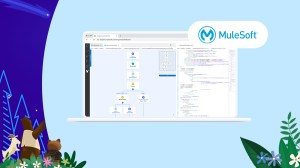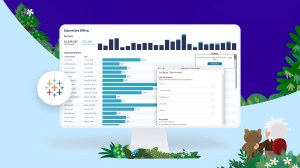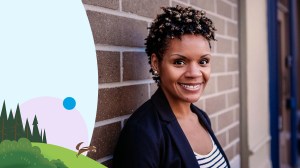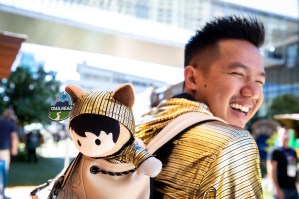Modern Work
How the Salesforce Ecosystem Sparked a Developer’s Appreciation for Low Code and Mentorship
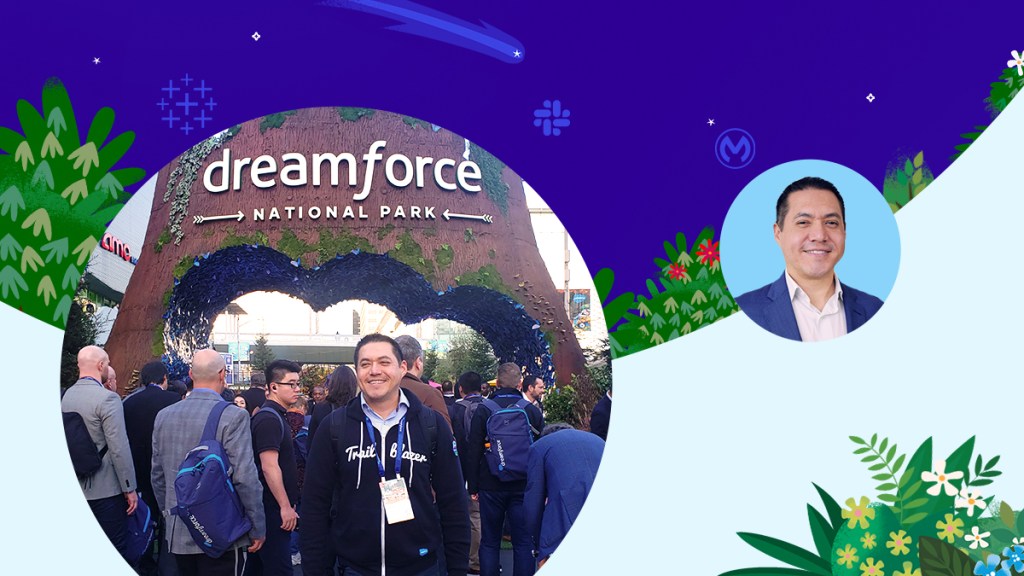
Quick Take:
- To help diversify the tech industry, MuleSoft solutions architect Miguel Martinez has mentored hundreds of developers, focusing on bridging the technical skills and cultural communication gaps between Latin America and the United States.
- A pro-code Java developer, Martinez was initially resistant to low code before learning about its many advantages when he started developing applications with MuleSoft and continued his learning with Salesforce ecosystem resources like: Trailhead, Trailblazer Community, MuleSoft Training, and the MuleSoft Community.
- Martinez is one of thousands of developers who will be attending TrailblazerDX, an integrated conference for Salesforce, MuleSoft, Slack, and Tableau, where developers can quickly develop, build, integrate, and automate apps across the Salesforce ecosystem.
When he was 13, the Mexican computer company Printaform changed Miguel Martinez’ life. It was 1993 and he was living in Monterrey, Mexico. One day, while hanging out at his grandmother’s house, one of his uncles, a software engineer, brought over a Printaform with MS-DOS 1.0. Martinez was instantly curious to learn everything about the machine. That day was the beginning of his path to becoming a software developer in the United States — a path filled with culturally-specific obstacles the Texas-born Martinez hopes to clear for future generations.
Since falling in love with the camaraderie from his first Dallas MuleSoft Meetup in 2016, Martinez has made it his mission to help others thrive in the tech industry. As a LATAM MuleSoft Practice Lead and Solutions Architect for Openlogix, a tech services company based in Bloomfield Township, Michigan, Martinez has now mentored over 100 people around the globe, with an emphasis in Mexico and Latin America.
“As MuleSoft and the whole Salesforce ecosystem expands into Latin America, there’s a big opportunity to continue enabling people there and truly change their lives,” Martinez told the Salesforce Newsroom. “There are roles for everyone.”
According to Salesforce’s 2022 Global Digital Skills Index, which surveyed 23,000+ workers across 19 countries, just 29% of workers in Mexico say they’re very equipped with the resources to learn digital skills right now. Yet 46% say they’re actively involved in digital skills learning and training programs. The stats show the region is hungry for digital skills — and Martinez is ready to provide nourishment through mentorship.
The intricacies of cultural communication
Despite taking programming classes since high school and mastering programming languages like Java, it took Martinez a long time to truly believe he could have a successful tech career.
“Every time you see a developer or hacker on TV, you see someone barely looking at the computer screen, typing 1000 words per minute!” laughed Martinez. “I thought, ‘Man, I’m never going to get to that point.’”
In addition to not looking the part, language was a huge obstacle for Martinez. Not just from a translation standpoint, but even a time management perspective.
“Back in school, I had to reread everything a thousand times before I understood something that was very challenging,” Martinez said. “Knowing English helped me understand technical books faster. But as I moved up in my career, I realized communication style and word choice are just as important. I can use technical jargon and buzz words in my engagements and meetings in the business world, but those are different than the words you use with friends or outside of work. It’s still a challenge for me.”
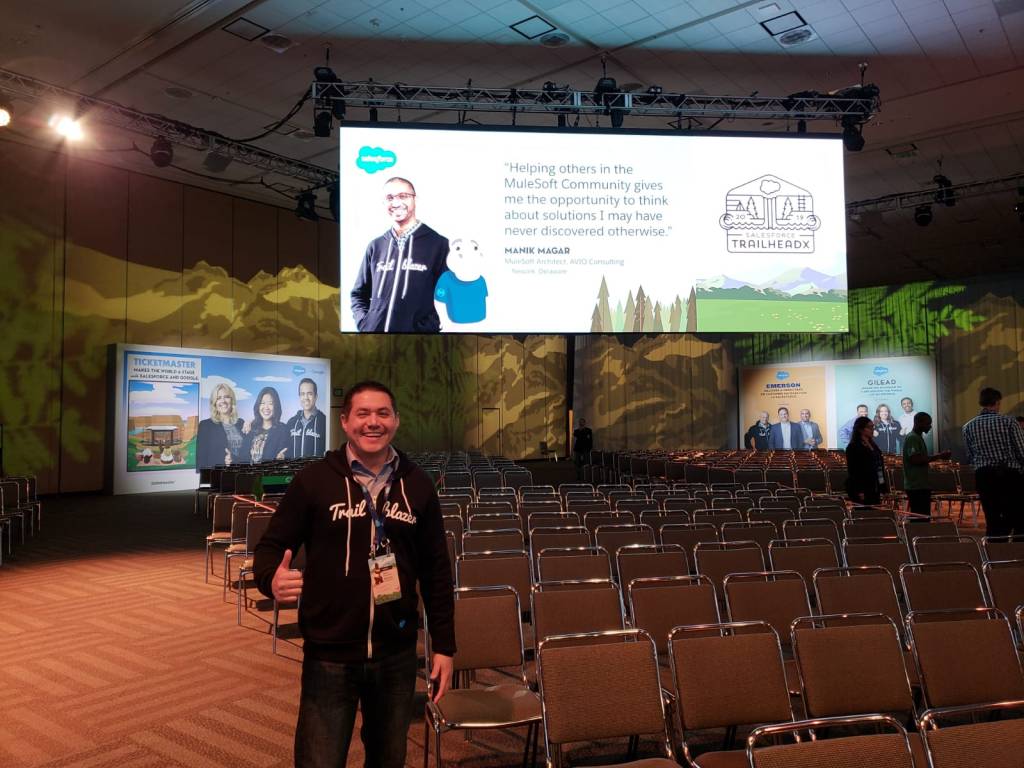
That’s where tools in the Salesforce ecosystem can become invaluable to Trailblazers like Martinez. Trailhead — Salesforce’s free online learning platform — features self-paced courses and training modules on everything from soft skills like career development planning, to hard skills like integrating apps and data with MuleSoft Composer. For advanced developer training, MuleSoft Training offers a range of courses for developers, architects, and DevOps professionals. Together with the Trailblazer Community — a global network of millions, including from the MuleSoft Community, who use the Salesforce ecosystem to build successful careers, communities, and companies — Martinez diversified his own skillset, while ramping up those of his employees.
We’ve made it our mission to empower people with the tools they need to build dynamic careers, communities, and companies with Salesforce.”
kris lande, svp trailblazer ecosystem, salesforce
“For Salesforce, it’s not only about creating new technology and career opportunities; we have to pave pathways to these new jobs,” said Kris Lande, SVP, Trailblazer Ecosystem, Salesforce. “We’ve made it our mission to empower people with the tools they need to build dynamic careers, communities, and companies with Salesforce, and thrive in a digital-first world.”
Saying Yes to Low Code
Ironically, it wasn’t love at first sight between Martinez and the Salesforce ecosystem. As a conventionally-trained professional software developer, or pro-coder, it took Martinez a little while to warm to the benefits of leveraging low-code tools in software development.
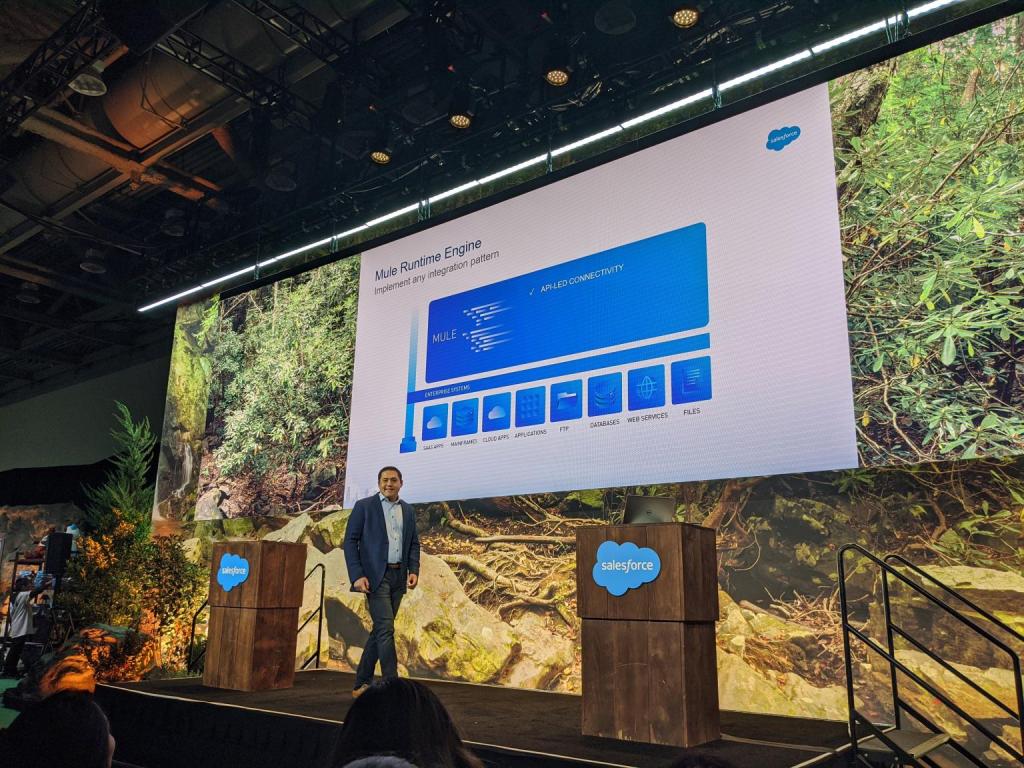
“To be honest, I didn’t like it at the beginning,” grinned Martinez. “But when I became a manager, I felt the pressure to deliver solutions faster. I didn’t have the luxury to hire expensive, senior developers and train them to deliver something within a year. I needed solutions in weeks. That’s when I realized the benefits of MuleSoft’s integration tech and having a low-code tool. Developers still need to understand the principles of good software development and coding, but now, the ramp-up time is super fast.”
I didn’t have the luxury to hire expensive, senior developers and train them to deliver something within a year… that’s when I realized the benefits of MuleSoft’s integration tech and having a low-code tool.”
miguel martinez, mulesoft ambassador, openlogix
After learning the power of low code, Martinez dove deeper into the Trailblazer and MuleSoft Communities and made it a point to connect with people from diverse cultural, educational, and professional backgrounds.
“It helped me become a better listener, which I’m still working on because I talk a lot!” joked Martinez. “As a leader, I’ve become more tolerant to different communication styles — aggressive, passive. I try not to take things as personally, which is very cultural. It’s helped me become a better person and that’s very motivating to keep growing and give back.”
More Stories from TrailblazerDX
For all of his pro bono work, the MuleSoft Community named Martinez a MuleSoft Ambassador, a title that recognizes his contributions in mentoring developers and blazing trails for others by hosting regular meetups, speaking at events, translating content from English to Spanish, coaching through social media, and continuing to brainstorm ways to shrink cultural communication gaps.
“The communication in Spanish is not always the same level of detail as used in the U.S. That can lead to confusion,” said Martinez, who’s working on a training program on communication tips for Latin American developers. “For instance, when I’m preparing mentees for an interview, they might say something like, ‘Go up and left.’ But I ask them to elaborate: ‘Go up where? Where is up?’ I teach them to be more precise in their communication on U.S. projects or with American developers. It helps close that cultural gap when it comes to communication style.”
The diversity of opportunity
Reflecting on his own career opportunities, Martinez is passionate about creating more diverse representation in the tech industry, but he’s not just referring to race.
“I’m often the only Hispanic on high performing IT teams and I can trace that back to the opportunity of having a high quality education,” reflected Martinez, whose father was a professor at the Universidad Autónoma de Nuevo León in Mexico and enrolled him in college programming classes when he was still in high school. “Diversity is not limited to ethnic background or ideology, it can be about opportunities for education.
“For example, in smaller Latin American towns, there aren’t many opportunities for work,” Martinez explained. “In America, there’s a lot of mobility. You’re not expected to stay in the place you grew up, you can move. In Mexico, that’s not always the case. If you grow up in one area, you usually stay there.”
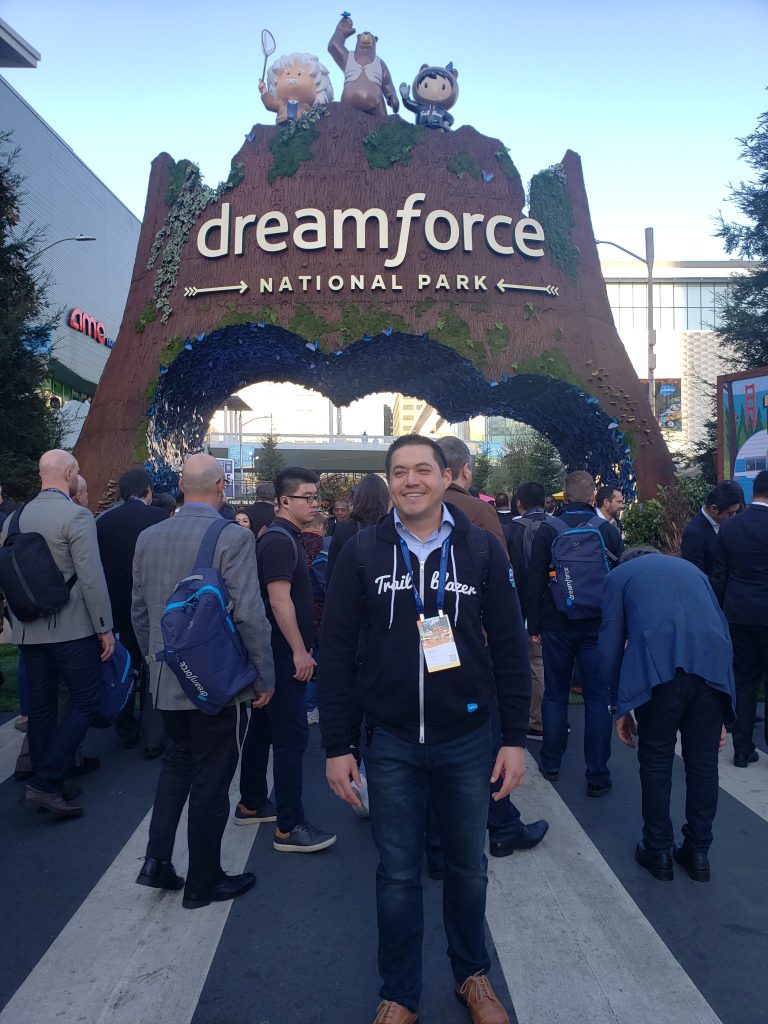
Martinez isn’t just passionate about representation, he’s actively participating in changing the data — proving that equity can change outcomes for all.
“Mobility can come from visibility. A trained software engineer was working as a construction worker after he couldn’t find career opportunities near where he lived,” explained Martinez. “By bringing MuleSoft projects to his region, I was able to give him some more visibility. He proved himself and landed a better salary. Same thing happened with a Junior MuleSoft support engineer who wanted to become a developer. We opened some doors for her, guided her through the interview process. Through a lot of hard work and dedication, she landed a new career. Now, just over a year later, she’s a MuleSoft Mentor!”
At TrailblazerDX, Salesforce’s annual developer conference on April 27-28, Martinez will join thousands of Trailblazers across Salesforce, MuleSoft, Slack, and Tableau to discuss the latest and greatest tech innovations. But for Martinez, the Salesforce ecosystem’s most powerful innovation is enablement.
“That’s why I love Salesforce, because we emphasize diversity and inclusion. It doesn’t matter where you come from, your education. It doesn’t matter that you were an accountant and now want to be a developer, you can be a developer. You just need a chance.”
Or a trail.
